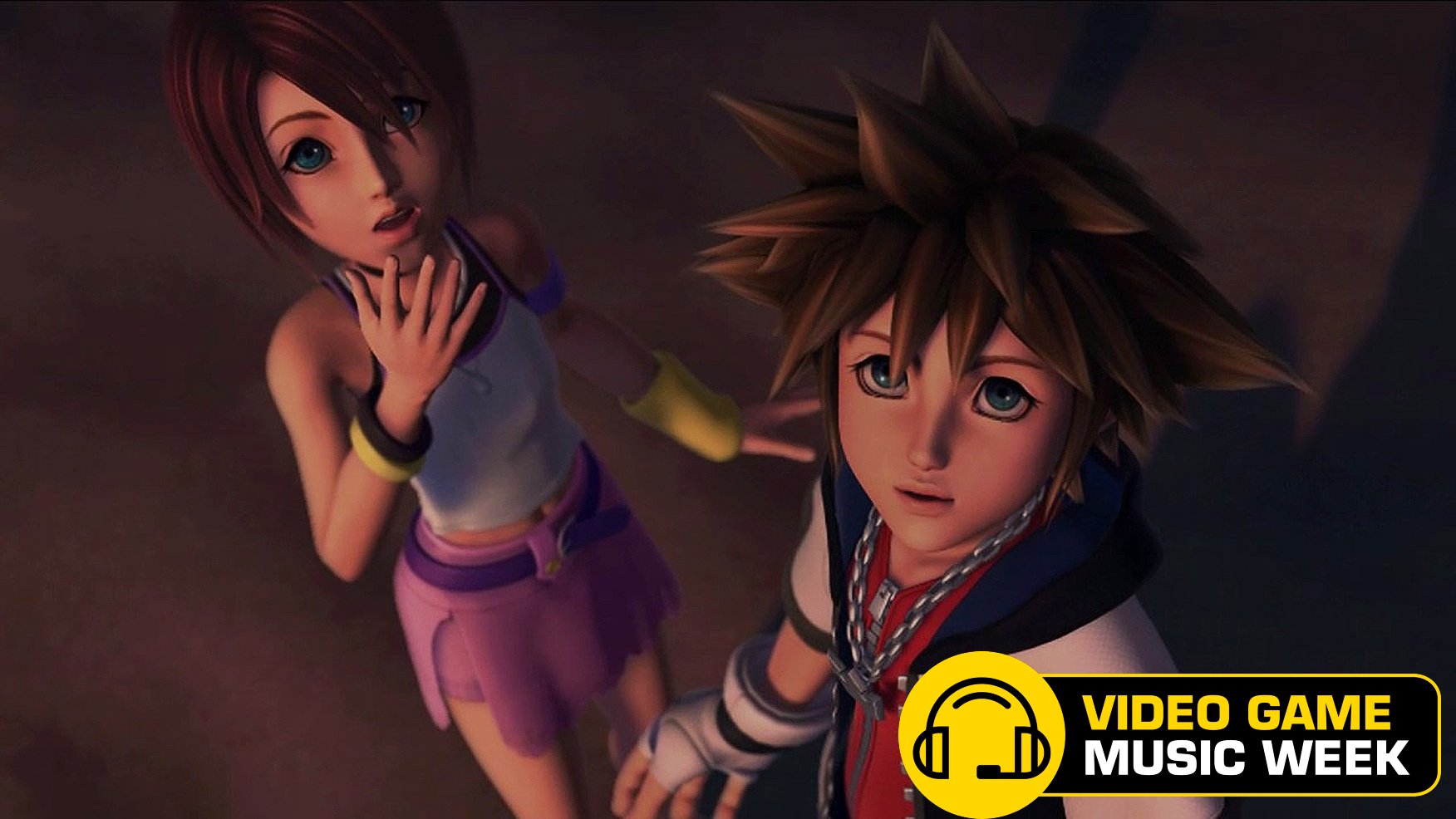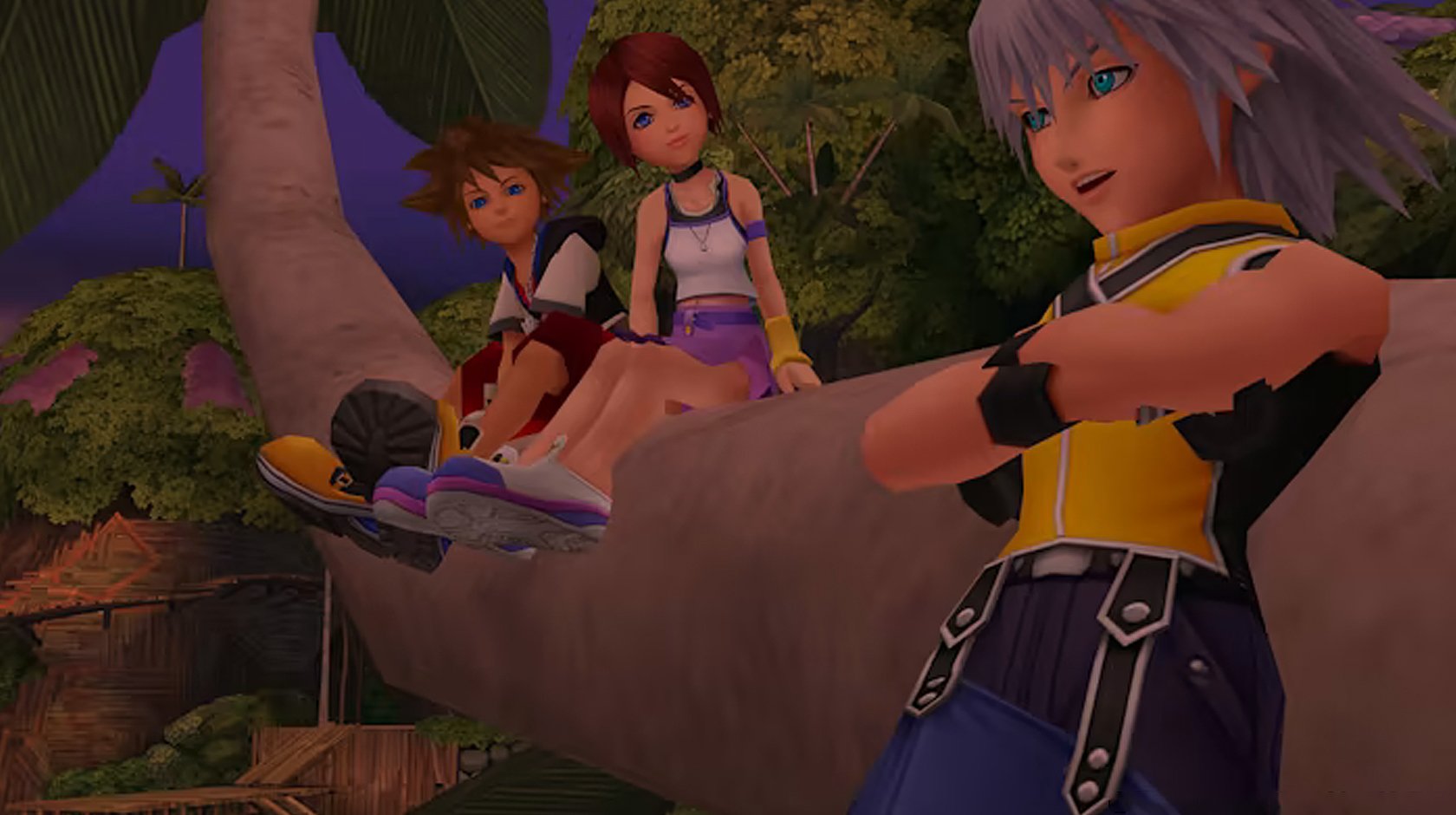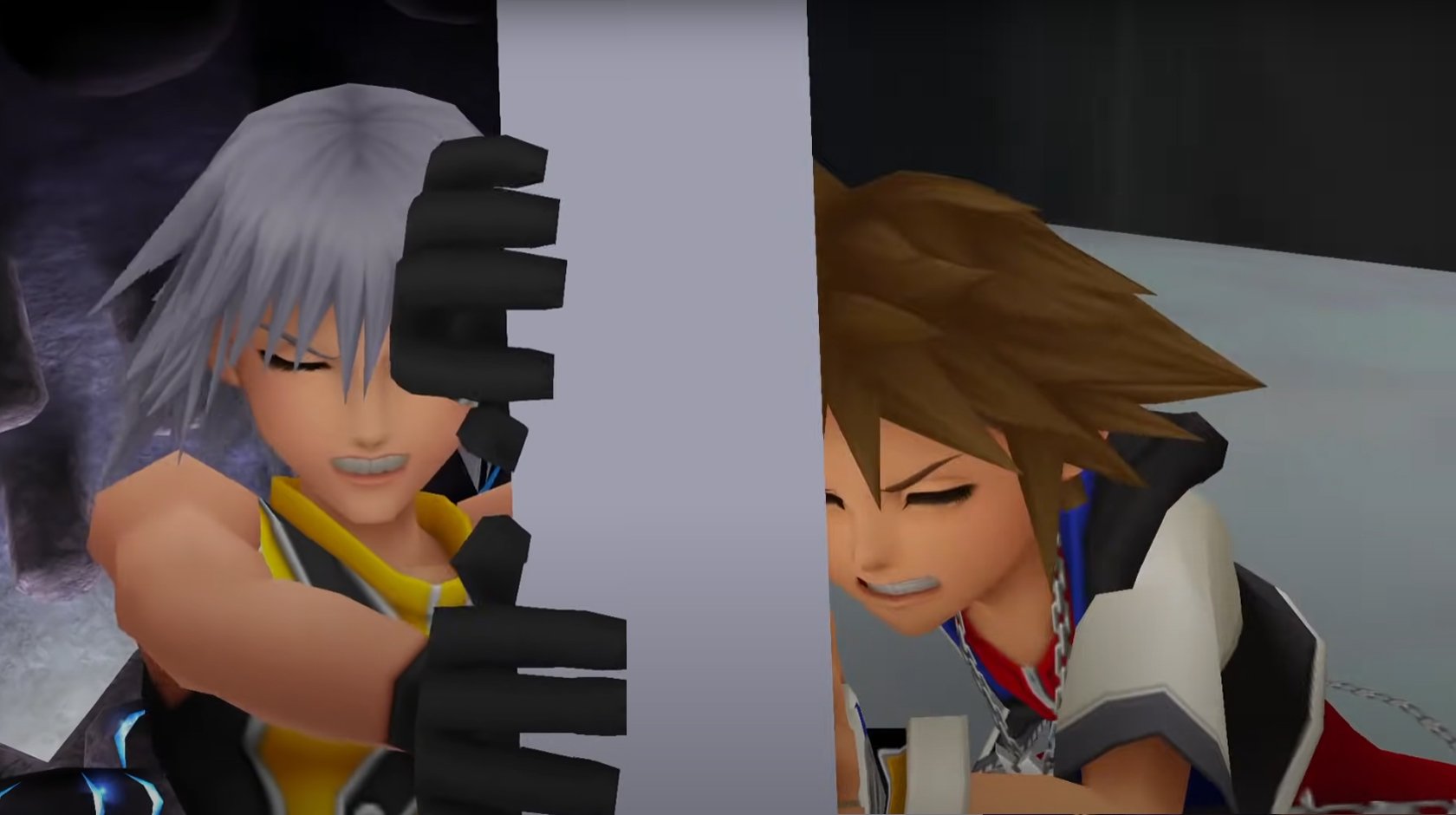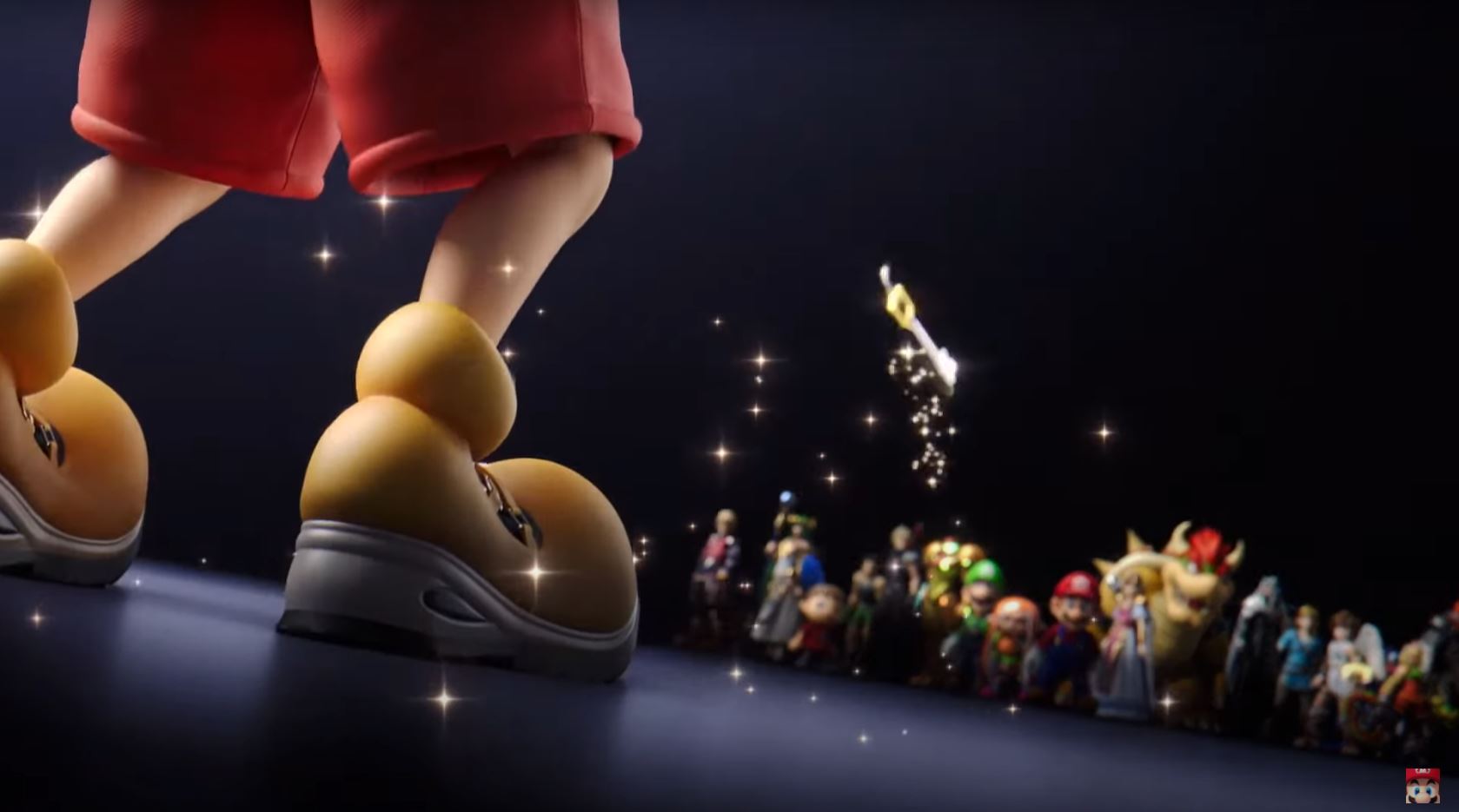Kingdom Hearts is more than just Simple and Clean

This week, we're celebrating video game music at Windows Central and iMore, from the tracks to the composers that created them. For more music appreciation, click here.
When you think of Kingdom Hearts music, you probably think of Simple and Clean, which is sung so beautifully in the first game by Utada Hikaru. As ironically named as it is for a series that has such complicated and muddled plot points, this song combined with the game's opening instrumental score, Yoko Shimomura's Dearly Beloved, helped set the tone for first-time players.
When Kingdom Hearts first debuted, we had no idea what we would learn. Over time, we discovered it was a series that focuses on balance. Feelings of happiness and hopelessness. Love and loss. Light vs literal Darkness. But as a wise mouse once said, "the world's made of light and darkness. You can't have one without the other." This is exactly what we see in Kingdom Hearts' music: a duality. We get so many beautiful combinations of seemingly opposite emotions, which we learn aren't so separate after all.
Warning: There are plot spoilers for the first Kingdom Hearts game in this page, so if you don't want anything ruined you shouldn't read any further.
Starting off with Dear Beloved
In 2002, I was a teen anticipating the release of Kingdom Hearts on PS2. I expected this to be a somewhat silly fluff game where I could interact with some of my favorite Disney characters. While it's true that there are ridiculously upbeat moments that plunge players deep into pure cheese, I wasn't expecting the complex story and depth of emotions the game would also bring. Thankfully, the almost conflicting tones in the opening music gave me a sense that I was about to experience something deeper than I first thought.
"Darkness is half of everything. Sorta makes ya wonder why we are scared of the dark."- Mickey Mouse
After inserting the disc, I landed on the opening menu and the piano chords from Shimomura's Dearly Beloved took my hand, guiding me to a more somber head space. The keys filled me with bittersweet emotions, like I'd just said goodbye forever to my best friend knowing they'll be happier somewhere else. In a feat that's nearly impossible to achieve, the intense sadness is equally balanced with feelings of hope masterfully weaved into those simple piano chords and soft crashing waves.
As eager as I was to get playing, I couldn't help but stop and listen to this haunting-yet-hopeful score for several minutes before I actually decided to start a new file. The notes filled me with sonder, pulled me out of my body, and made me wonder about the complicated lives of others. What sad experience is this lone boy on the screen thinking about as he gazes into the ocean? What has he lost? Wasn't this supposed to be an upbeat Disney game? I knew I had to start the adventure and find out what was in store.
Master your iPhone in minutes
iMore offers spot-on advice and guidance from our team of experts, with decades of Apple device experience to lean on. Learn more with iMore!
Moving into Simple and Clean
Upon starting a new file, Kingdom Hearts launched into the opening video accompanied by Simple and Clean's catchy beat. At first, it seemed like a basic love song, but as I listened closely to the lyrics I noticed there were tones indicating something darker on the horizon. "Regardless of warnings / the future doesn't scare me at all / Nothing's like before."
The song seems to be singing about insecurity — uncertainty in a relationship, fear of the unknown, or even the inevitable loss of innocence as we grow up. But then, why does the music on the first listen sound so happy? The music is, of course, accompanied by what was then some of the best video game graphics of the time. You watch Sora's relationships with his best friends, Kairi and Riku, get pulled apart, unsure if it'll come back together.
Before I'd even properly gotten to control Sora for the first time, I'd been hit with two songs that perfectly encompass the duality of happiness and sadness that exists in us all.
Ending with Always on My Mind

The music only proved this point further as I made my way through the story. In this adventure, Sora is on a mission to find his friends after their world, Destiny Islands, was destroyed by Heartless. One of these friends, Kairi, has been captured by Disney villains and is in a comatose state. The other, Riku, sees Sora as a traitor. Sora feels hurt by this accusation. He just discovered with Donald and Goofy's help that he is a Keyblade wielder with the power to seal Heartless away and save worlds. But he is torn between helping everyone and helping his friends.
Seeing Sora's focus on others as indifference to his childhood friends, Riku inevitably decides to align himself with Darkness in order to save Kairi by himself. In so doing, he works with Disney villains to kidnap the Princesses of Heart who together can open Kingdom Hearts, an incredibly powerful entity formed from countless hearts. Variations on the Dearly Beloved theme are used throughout the story's more serious moments, highlighting the intense sadness and/or the hope felt by the characters at different parts.

After traveling through several Disney worlds and locking their magical Keyholes to prevent Heartless from being able to appear on said worlds, Sora engages in several elaborate battles and sacrifices himself temporarily to save Kairi. He then turns his attention to freeing Riku who has been possessed by an evil man known as Ansem. After defeating Ansem, Sora attempts to close the door to Kingdom Hearts since several Heartless are trying to come through. The recently-saved Riku works to pull the door shut while Sora, Donald, and Goofy push it closed, sealing Riku inside.
This moment gives Riku his redemption through personal sacrifice and heals the broken friendship between him and Sora, but also separates them indefinitely. A veritable concoction of sentiments filled my teen heart at this moment. Once more Shimomura's thoughtful piano notes drift in playing the score Always on My Mind, which incorporates Dearly Beloved's somber-yet-hopeful notes with a happier music box tune while Sora thinks about his childhood memories of Riku and the sacrifice his friend just made.
Meanwhile, the previously destroyed worlds, including Sora's homeworld, start piecing themselves back together. In the game's closing video, Kairi appears and Destiny Islands starts reforming around her as Simple and Clean once more starts playing. Only this time, the catchy beat felt a bit more despondent than before. As the beach starts coming back into view, a gap grows between Kairi and Sora. He then promises that he will come back to her someday as the two are separated. Once more, the mixture of happiness and saddness comes into play as things are mostly returned to normal but the friends are divided from each other.
This sense of unfulfilled longing is exaserbated further when Kairi wanders around her reappearing world and discovers a drawing on a cave wall that Sora had made at the start of the game, basically saying that he loved her. Happy tears spring to her eyes, yet another harmonious opposite. She uses a rock to scratch her returning sentiment into the wall just before the game cuts to the credits. A beautifully ending that incorporates both loss and a new discovery. An ending and a beginning.
A complex legacy

A version of Dearly Beloved has gone on to be incorporated in just all of the Kingdom Hearts games since. It continues to have a poignant role, especially in Kingdom Hearts 2 as we learn about Roxas' tragic destiny, Axel and Organization XIII, and, of course, the Keyblade War from years ago.
Simple and Clean is more like the theme song for the first game and isn't utilized as much in following games. However, that hasn't kept it from also providing complex sentiments both inside and outside of the Kingdom Hearts franchise, as was the case when it was used to announce Sora as the last DLC fighter in the Super Smash Bros. Ultimate reveal. Like the latest Smash, all main Kingdom Hearts games are currently available on Nintendo Switch via cloud streaming, so you can check this classic out in handheld without needing space on your microSD card.
The Kingdom Hearts plot gets increasingly difficult to follow after the first game, but regardless of how lost you might feel, the music is always there to guide you and makes you question things at face value. Why is such sad music playing while a supposed bad guy is talking to Sora? There's likely a tragic backstory waiting for you to uncover. But most importantly, the music helps us better understand that we're all made up of a mixture of complex and seemingly conflicting emotions. Learning to understand this duality in ourselves is a step towards the balance we all need.

Gaming aficionado Rebecca Spear is iMore's dedicated gaming editor with a focus on Nintendo Switch and iOS gaming. You’ll never catch her without her Switch or her iPad Air handy. If you’ve got a question about Pokémon, The Legend of Zelda, or just about any other Nintendo series check out her guides to help you out. Rebecca has written thousands of articles in the last six years including hundreds of extensive gaming guides, previews, and reviews for both Switch and Apple Arcade. She also loves checking out new gaming accessories like iPhone controllers and has her ear to the ground when it comes to covering the next big trend.
